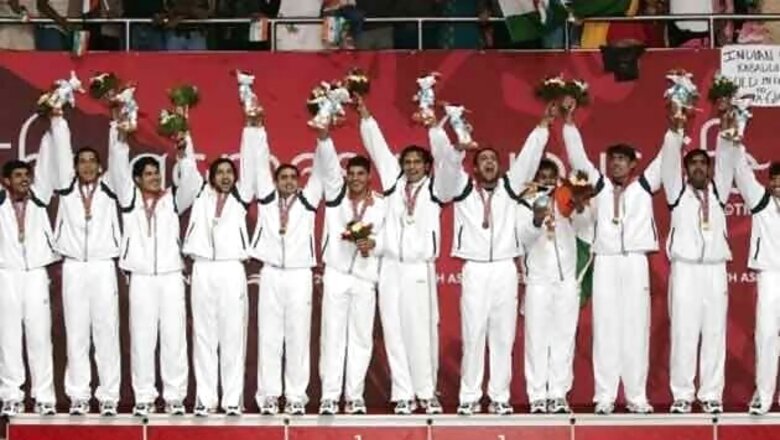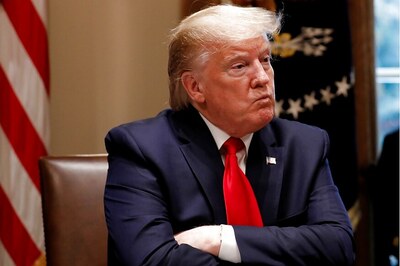
views
As cricket continues to maintain a stranglehold on India's sporting landscape, the organisers of a new kabaddi league have taken a hands-on approach at dragging the quaint, indigenous game into the professional era.
The success of India's IPL Twenty20 cricket tournament has spawned similar franchise-based competitions on a much smaller scale in several sports and kabaddi, a mixture of team tag and wrestling, is the latest to attempt a formal structure.
Roughly 100 players will enter an auction early next month and STAR Sports will broadcast the eight-city Pro-Kabaddi League live from July 26 as the ancient sport is propelled into the 21st century on the back of big-money sponsorship deals.
Rakesh Kumar, who captained India to the 2010 Asian Games gold in Guangzhou, reckons the new league is precisely what the game needs to advance towards professionalism.
"We may not become household names overnight but there would be more money and more visibility for sure," Kumar, a ticket inspector with Indian Railways, employers of the largest number of kabaddi players, told Reuters.
"Kabaddi is only shown on television when we win gold at the Asian Games and sporadically during the nationals but now we have a confirmed, quality broadcaster for the league, public interest is bound to rise."
Revolving around very basic skills, the game is played by two teams of seven, in which a 'raider' enters the other half of the court to tag or wrestle opponents before returning 'home' while holding his breath and chanting 'kabaddi, kabaddi'.
India has bagged all six Asian Games gold medals in men's kabaddi while also winning the inaugural women's event in Guangzhou.
Charu Sharma, the man behind the league, said India's success and kabaddi's popularity in rural areas of the world's second most populous nation made the tournament boasting 10 million rupees ($165,800) in prize money an inevitable step along the path of progression.
"Kabaddi is our unique heritage. Our lack of respect for what is our own is simply mystifying," Sharma, a well-known television commentator, told Reuters.
"It's tailor-made for television. Played by extremely athletic sports persons in a small indoor arena, under the lights, on a coloured mat... it's a spectacular one-hour of good television."
What makes Sharma optimistic of the league's long-term viability is the fact that franchise owners, including Bollywood actor Abhishek Bachchan and industrialists Uday Kotak and Kishore Biyani, are in no hurry to cash in on their investments.
EUREKA MOMENT
"The 'eureka moment' was when I was commentating on kabaddi at the 2006 Asian Games," he added.
"It took us a while to conceive the league as I wanted to make sure that all our franchises are educated. We just didn't want anyone with a little bit of money.
"Sports team ownership has a lot of other tangential, secondary benefits which you cannot undervalue. What about the visibility, publicity, acknowledgement, fun, contribution to society, doing something new? All these have to be considered.
"We hope to be the quickest to break even but there is more to it than just economics."
While this may not convince most business houses to pick a franchise, the league has somehow attracted team owners who think along the same lines.
For Unilazer Sports, which bought the Mumbai franchise, the league is an ideal vehicle to tap into the 400 kabaddi clubs in India's financial capital, with a catchment area of around 15 smaller towns.
"As the CEO, I'd want to recover money from day one," Unilazer chief executive officer Supratik Sen told Reuters. "But we at Unilazer are approaching it differently.
"Is it a great business proposition? That's yet to be seen. It's an indigenous sport that needs no introduction here and that's why we are in it."
Badminton and volleyball have gone the 'IPL' way in India while franchise-based wrestling and soccer leagues have also been announced.
Many are sceptical how sound these business models are in a cricket-obsessed country but Sen is enthusiastic on the prospect of success in the kabaddi league.
"It has massive potentials to be a success, if it can be made TV-friendly. STAR Sports would not get into it if they don't think it's possible. They have been doing it globally. If they got excited, there must be something in it.
"We're staying in this for a long time, we see its business potentials. People talk about IPL but I don't know if all IPL teams are making money."


















Comments
0 comment